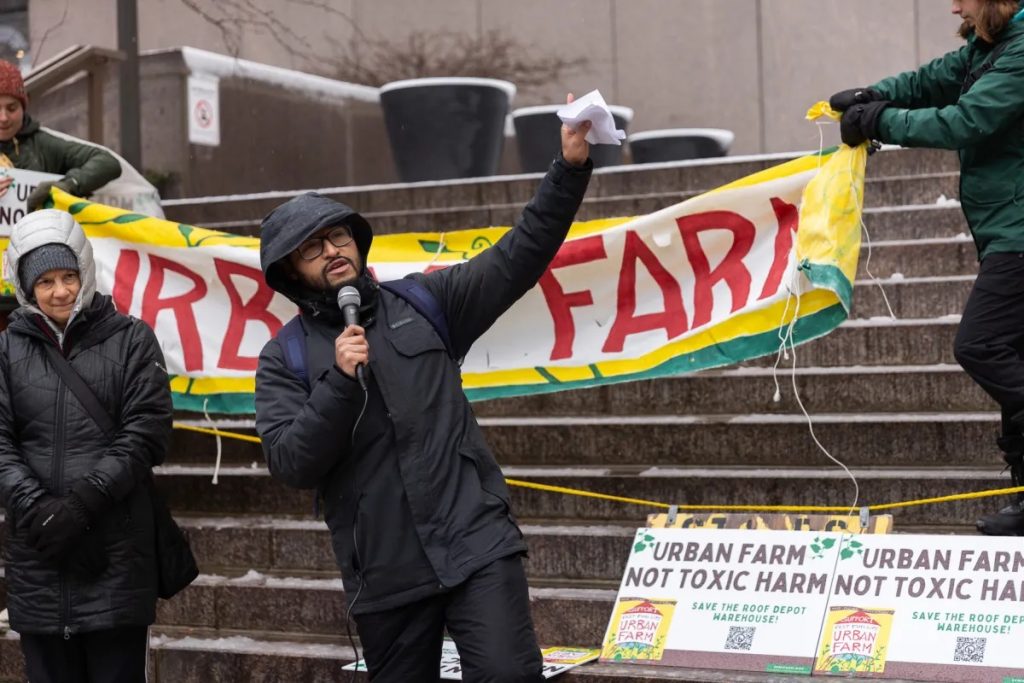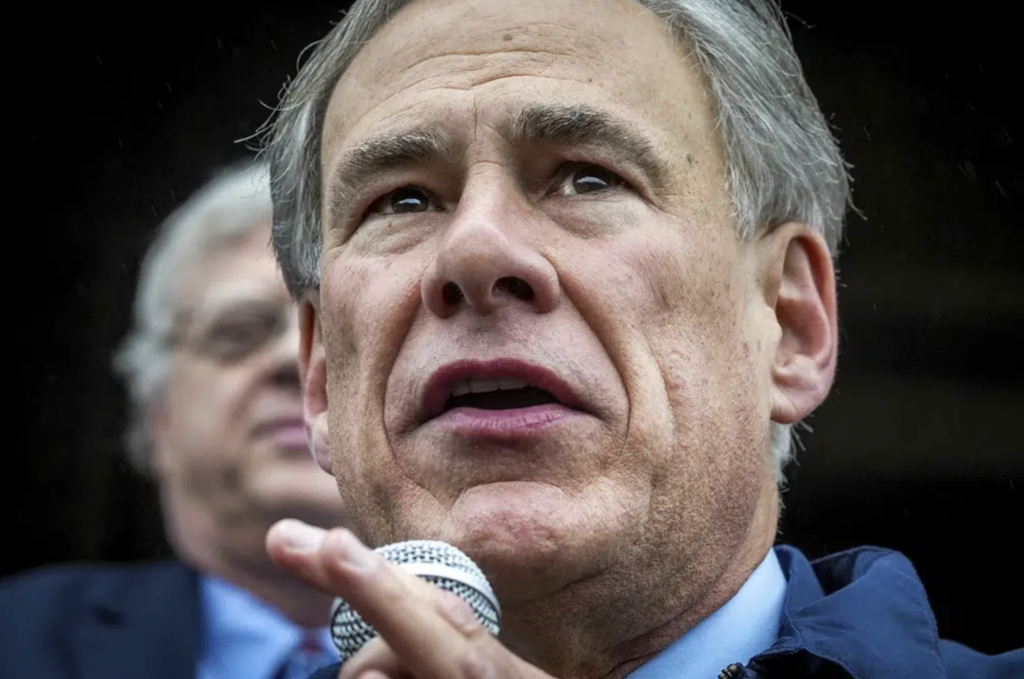This week’s edition covers stories
from May 18th to May 24th, 2023.
Today’s issue is 733 words, a 5.6–minute read.
Today’s edition: Isabella and Helene talk updates to the East Phillips Urban Farm initiative and potential book bans in Texas schools.

East Phillips organizer Joe Vital speaks at a rally outside the Hennepin County courthouse on December 15, 2022. 📸 Jaida Grey Eagle | Sahan Journal
Good morning, NewPrensa readers! It’s Helene! We’re back with some news I’m SUPER excited about: The East Phillips Neighborhood Institute reached a deal to purchase the Roof Depot site from the city of Minneapolis! If you need a refresher on all that has been going down with the Roof Depot, check out our newsletter from late February here. But let’s talk about the here and now! What are some of the details of this new deal?
The City agreed to sell the site to the neighborhood institute for $3.7 million. As part of the deal, the money must be raised by September 7th, 2023. When the money is successfully raised, the state will award an additional $5.7 million in 2024 to help cover taxpayer money spent planning for a new public works water yard on the site. In general, it seems like reactions are positive, both on the side of the Institute and on the side of lawmakers and the city. It really is a big win for East Phillips, who’s had community members fighting for the Roof Depot for years. The institute is now tasked with raising the nearly $4 million in just under four months, but has lined up the support of a hydroponic and aquaponic agriculture firm and local business leaders such as Abdirhman Kahin, owner of the Afro Deli. Stay tuned to find out what’s happening next with the Roof Depot site, but for now, the NewPrensa team extends its congratulations to all those who worked so hard for such an important project!

Hello readers, Isabella here. Texas is introducing regulations and bans in public and charter school libraries when it comes to “sexually explicit material”. This is problematic and unconstitutional. All around the United States, legislators are discussing the lengths that education will go to to ban books. There are two things that come to mind when I hear of book bans. First, our constitution’s first amendment and the right to freedom of speech. And second, Nazi Germany’s massive book burns. It’s a far stretch to compare them, I know. However, it’s interesting how “Censorship” is not considered a violation of the constitution “unless the government does it.“, according to The Free Speech Center.
A state can have control over a school’s curriculum and approach book banning from a non-censoring of speech perspective. That is, schools can determine what books to keep in libraries as much as the removal of those that are deemed educationally inappropriate. Public demonstration of disagreement, however, is entirely legal and protected constitutionally, too.
Remember I said the Texan book ban is problematic? A lot of the materials that could be banned are LGBTQ+ subject matters. In addition, “sexually explicit materials” enclose topics related to sexual health. NewPrensa has spoken on threatening state-wide issues to the LGBTQ+ community, and banning books related to these issues is the next one on our list. There’s a debate around sexual content taught in schools and how parents are entitled to decide what their children learn, and how. However, banning this type of content is dangerous in a hyper-technological era where content is easily accessible to our young ones. The Washington Post analyzed 1,056 complaints from 153 districts from PEN America researcher Tasslyn Magnusson; 43% targeted LGBTQ issues and characters, while 36% targeted BIPOC characters or issues of race and racism. 61% was sexual content. Within these numbers, readers can find a bit of both, or all of the above. Majority of complaints have expressed a similar concern: negative influence on their children through these topics. Influence can be “it’ll make my child question their sexuality and want to be gay”, or “my children aren’t taught to be racist but could become racist”.
Exposure to topics that children could be going through can be helpful in multiple ways. To understand their bodies, consent, their sexuality, or even topics of abuse. These issues are not obscene. Instead, books like “All Boys Aren’t Blue” (George M. Johnson), “The Hate U Give” (Angie Thomas), or “The Bluest Eye” (Toni Morrison), have an educational and representational value.
What do you think? Let us know at newprensa@newpublica.com.
That’s all from us, folks!
-Isabella and Helene

We’re Communications Specialist by day
and playing some serious games of badminton by night.
Do you enjoy reading NewPrensa?
Forward it to someone you think may enjoy it too!
Got suggestions, feedback, or a good scoop?
Send it to us at newprensa@newpublica.com
If someone sent this newsletter your way, feel free to subscribe to get local, BIPOC news delivered to your inbox every Thursday morning.



